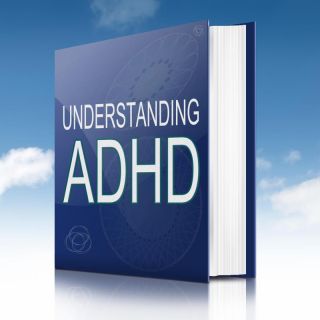Key points
- Up to 80% of patients with Adult ADHD respond to medication.
- There are two classes of medications that are FDA approved for Adult ADHD, the stimulants and the non-stimulants
- There are two classes of stimulant medications, the methylphenidates and the amphetamines.

Psychopharmacology: Adult ADHD*
There are numerous medications that can effectively treat Adult ADHD including stimulants, non-stimulant medications, antidepressants, and narcolepsy medications.
This article will discuss the classes of FDA approved medications, their potential side effects and safety profiles.
Types of ADHD Medication Treatments
Up to 80% of patients with Adult ADHD respond to medication. This is significantly higher than the 50-60% of depressed patients who respond to antidepressants.
There are two classes of medications that are FDA approved for Adult ADHD, the stimulants and the non-stimulants. The stimulant medications include Ritalin, Ritalin LA, Concerta, Focalin, Adderall, and Vyvanse. The only FDA approved non-stimulant treatment is Strattera, which many psychiatrists believe is less effective than the stimulants.
Theoretically, both classes of medications work by affecting signals in the brain called neurotransmitters. Scientists believe that a deficit in the neurotransmitter dopamine leads to the symptoms of ADHD. Thus, by increasing the dopamine with these medications, the symptoms of ADHD are improved.
There are two classes of stimulant medications, the methylphenidates, such as Ritalin and Focalin, and the amphetamines, such as Adderall and Vyvanse. Many patients will respond equally to either class of stimulants. However, 25% of patients respond better to the methylphendidates and 25% of patients respond better to the amphetamines. Therefore, it is imperative that both patient and psychiatrist are persistent in finding the most effective treatment.
Side Effects
Some of the common side effects of stimulants include dry mouth, constipation, anxiety, irritability, hyper-focus, insomnia, decreased appetite, weight loss, psychosis, mania and insomnia. In addition, stimulants can increase heart rate and blood pressure, which is discussed in more detail below. Another potential side effect of stimulants is a priapism, a painful and prolonged erection. Patients should be alerted to this prior to starting the medication and told to go to the emergency room should this happen. Priapism is a medical emergency and may cause permanent damage.
Safety
Since stimulants can increase blood pressure, heart rate, and cause irregular heart beats, there is significant concern about the cardiovascular risk of ADHD treatments. According to the FDA's website both "stimulant products and atomoxetine [Strattera] should generally not be used in patients with serious heart problems, or for whom an increase in blood pressure or heart rate would be problematic." For healthy patients, there are conflicting studies and expert opinions about the cardiovascular safety. Since ADHD treatments can increase the risk of serious cardiovascular events such as heart attack, stroke, and death, the potential risks and benefits must be closely assessed by both the physician and patient.

Due to these safety concerns, a complete psychiatric and medical assessment should be completed. If there are any cardiovascular risk factors, symptoms, or history, the patient should be referred to a cardiologist for a thorough assessment to determine the individual's risk.
Conclusion
Adult ADHD treatment can be effective for many patients. As discussed in this article, the dosing, monitoring, treatment response, and risks are important considerations in providing safe and effective treatment. I hope this article has helped you understand the potential medical treatments for Adult ADHD. Please feel free to contact me if you have further questions.
*Disclaimer: The material contained here is not intended in any way to replace proper medical supervision or advice. All decisions which may impact your health should be discussed with your physician.
References
1.Habel L, Cooper W, Sox C, et al. ADHD Medications and Risk of Serious Cardiovascular Events in Young and Middle-Aged Adults. JAMA 2011; 306(24): 2673-2683.
2.Schelleman H, Bilker W, Kimmel S, et al. Methylphenidate and Risk of Serious Cardiovascular Events in Adults. Am J Psychiatry 2012; 169: 178-185.
3. Zukkoor, Sarah. The Safety of Stimulant Medication Use in Cardiovascular and Arrythmia Patients. April 28, 2015. American College of Cardiology.


